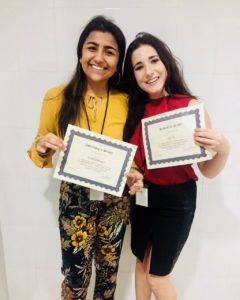At the majority of conferences, the most common awards given out are the Best Delegate, Outstanding, and Honorable Mention awards. These are presented to delegates from each of the respective committees in the conference for their overall performance in committee. However, considering what these awards themselves represent, the questions stands – could something seemingly minimal as the name of the given awards, affect the overall outcome of a conference? The answer is yes.
While the idea of giving out awards remains controversial, most tend to accept that while there are drawbacks to giving out awards, they do provide a strong incentive for participation and engagement in committees. Nevertheless, several conferences have begun to change the name of their awards from the characteristic names to more specific areas of expertise such as Researching award, Diplomacy award, Best Position Paper award, and more.
While this may seem like something too ordinary to create any substantial change, it can make a difference. Recently, in PANAMUN XXV, the oldest and largest conference hosted in Panama, awards were completely changed. More than that, specific criteria were created for each of the awards, so delegates would be aware of the specific qualities they should try and embody during the debate.
While the main award of Best Delegate remained, Honorable Mentions turned into researching and diplomacy awards. The change in committees was noticeable. No longer were all delegates fighting for Best Delegate, afraid of receiving what most consider the shameful “second place” awards. Rather, there was a larger sense of harmony that could be sensed during debate.

The most significant difference, however, occurred in the closing ceremony of the conference. Something that is seen in all MUN conference is the fleeting disappointment on delegate’s faces as they receive Honorable Mentions, an award surrounded by stigma. Now, while delegates who aimed for the Best Delegate award were still disappointed, receiving awards such as being the best researcher, or the most diplomatic of the entire committee, allowed delegates to feel validated and appreciated for their outstanding perfrmances in committee. This is especially true because delegates who received these newly instated awards, could now look at the specific characteristics that permitted them to receive this award, allowing a sense of accomplishment.
Overall, awards create a competitive atmosphere in committees, but by having specific awards that still make delegates feel valued, this atmosphere becomes a more collaborative space in which delegates are able to focus more of their attention on the consensus-building processes, rather than trying to win the only award they believe holds importance.


